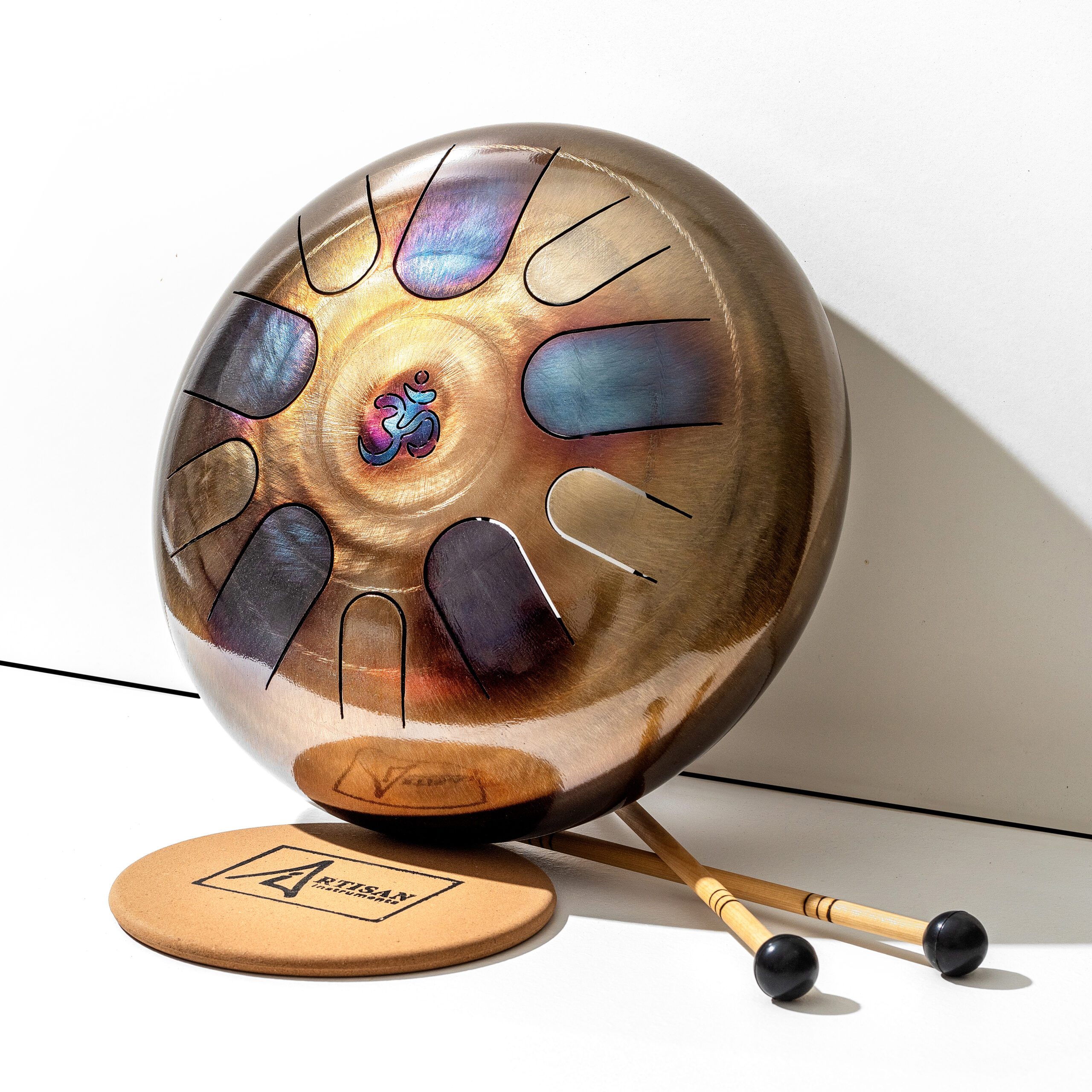🥁 How to Choose the Perfect Tongue Drum
A Guide to Finding the Scale That Speaks to You
Choosing a tongue drum is more than just picking a color or size — it’s about choosing a sound that resonates with your heart. Each scale has a personality, a mood, and a story. Whether you’re looking to play for relaxation, meditation, songwriting, sound healing, or simple joy, the right scale will feel like home.
Here’s a breakdown of some of our most popular scales and what they’re best suited for:
🌿 Pentatonic Minor
Mood: Meditative, introspective, gentle
Best for: Improvisation, relaxation, intuitive play, sound healing, ambient layers
The pentatonic minor scale is forgiving and flowy — there are no wrong notes, which makes it ideal for beginners or anyone who wants to play freely without overthinking. It’s often used in wellness and meditation settings and is a favorite among sound therapists.
✨ Think: playing during a sunset, long exhale moments, forest walks
☀️ Pentatonic Major
Mood: Bright, uplifting, optimistic
Best for: Creating happy melodies, family-friendly play, beginners, songwriting
The major pentatonic has that unmistakable feel-good sound. It’s the musical equivalent of a smile — clear, joyful, and easy to explore. This is a great choice for playing with children or jamming with friends who aren’t musicians.
✨ Think: morning light, playtime, casual jam sessions
🌊 Diatonic Major
Mood: Melodic, expressive, empowering
Best for: Playing familiar songs, structured melodies, learning music, songwriting
The diatonic major scale is the full 8-note Western scale (Do-Re-Mi…). It opens the door to traditional melodies — from classical to folk to pop. This is the scale used in our Singing Steel Drum Songbook, and is best for those who want to play familiar songs or compose new ones.
We’ve discovered that the best pitch and tone is found between the range of A Major Scale to C Major Scale (A, A#/Bb, C) although we are able to offer drums tuned from F3 and moving up chromatically to E4.
✨ Think: “Imagine,” “Ode to Joy,” or your own original song
🌑 Diatonic Minor (Natural or Aeolian)
Mood: Emotional, cinematic, soulful
Best for: Expressive playing, minor key songs, ambient moods, dramatic pieces
This scale gives off a beautiful melancholy — not sad exactly, but full of depth and honesty. It’s perfect for those who want to create emotional or cinematic pieces. Great for solo play or adding contrast in group work.
✨ Think: rainy day reflections, journaling, introspective solo time
🔮 Exotic Scales (Akebono, Hijaz, Giza, Hirajoshi)
Mood: Mysterious, ancient, textured
Best for: Sound journeys, storytelling, trance-like loops, ambient music, cultural exploration
These are the scales that turn heads and stir imaginations. With roots in Middle Eastern and Japanese music traditions, exotic scales bring a sense of the sacred and otherworldly. They’re popular in sound healing, dance, and spiritual practices — and they’re just so much fun to explore.
✨ Think: moon rituals, sacred spaces, experimental film scores, altered states
So… How Do You Choose?
Ask yourself:
- What kind of feeling do I want to create when I play?
- Do I want to play familiar melodies or just improvise?
- Where will I be playing? For yourself? For others? For healing work?
- Am I drawn to light or shadow? Simplicity or complexity?
Videos showing different scale options and how they sound:
Giza Pentatonic– start
Hirajoshi Pentatonic– 1:24
Yo Pentatonic – 3:16
Major Diatonic – 5:19
Minor Diatonic – 6:30
https://www.youtube.com/watch?v=oH51C19rbJY&t=12s
Hijaz Diatonic:
https://www.youtube.com/watch?v=o5S1QJFWZbk
Akebono Pentatonic:
https://www.youtube.com/watch?v=dzyaeFTCtG0
If you are having trouble choosing between 2 scales you could choose a Singing Steel Double Sided drum and have 2 scales on one drum!
Feel free to contact us if you have any further questions!


